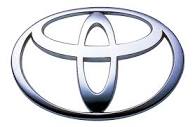Camry L4-2.4L (2AZ-FXE) Hybrid (2007)
_hybrid/Page-692001.png)
Refrigerant: Service and Repair
AIR CONDITIONING: REFRIGERANT: REPLACEMENT
REPLACEMENT
1. RECOVER REFRIGERANT FROM REFRIGERATION SYSTEM
(a) Turn the A/C switch on.
(b) Operate the A/C with the setting temperature at 25°C (77°F) and the blower level at LO for 10 minutes to circulate the refrigerant. This causes
most of the compressor oil from the various components of the A/C system to collect in the A/C compressor.
(c) Turn the power switch off.
(d) Recover the refrigerant from the A/C system using a refrigerant recovery unit.
2. CHARGE WITH REFRIGERANT
(a) Perform vacuum purging using a vacuum pump.
(b) Charge with refrigerant HFC-134a (R134a).
Standard:
480 to 580 g (16.9 to 20.5 oz.)
SST: 07110-58060
07117-58060
07117-58070
07117-58080
07117-58090
07117-78050
07117-88060
07117-88070
07117-88080
NOTICE:
-
Do not turn the A/C on before charging with refrigerant. Doing so will cause the compressor to work without refrigerant, resulting in
overheating of the cooler compressor.
-
Approximately 100 g (3.53 oz.) of refrigerant may need to be charged after bubbles disappear.
The refrigerant amount should be checked by quantity, not with the sight glass.
-
Avoid using the gauge manifold set that had been used for vehicles with conventional compressor oil (ND-OIL11 or equivalent) as much
as possible. This will cause compressor oil remaining in the manifold to enter the vehicle, resulting in insulation performance deterioration.
A gauge manifold set that had been used 3 times or less can be reused if an appropriate one is not available.
HINT: Ensure that sufficient refrigerant is available to recharge the system when using a refrigerant recovery unit. Refrigerant recovery units
are not always able to recover 100% of the refrigerant from an A/C system.
3. WARM UP COMPRESSOR
(a) Keep the A/C switch on for at least 2 minutes to warm up the compressor.
NOTICE: Be sure to warm up the compressor when turning the A/C on after removing and installing the cooler refrigerant lines (including
the compressor), to prevent damage to the compressor.
4. INSPECT FOR REFRIGERANT LEAK
